Vanuatu Cabinet takes positive stance on women’s seats
04th June, 2013

Vanuatu Parliament House
The Council of Ministers has agreed that there should be a right for women to have reserved seats in parliament.
In 2012, 17 women contested the elections, but none were elected to parliament. A women’s advocacy group in Vanuatu says it’s a breakthrough to have ministers acknowledge that women deserve to have seats set aside for them in parliament. The chairperson of the Coalition for Gender Equity in Parliament, Jenny Ligo, says there is still a long way to go, but agreeing on a 30 percent minimum representation of women in parliament, is a big step.
“The government is seeing the reality now that women’s participation, especially in political decisions, have been made very little impact. And now we see this political will on giving the women status, participation, it’s a big improvement.”
Jenny Ligo says the issue is expected to go through parliament in August and they hope the department of women’s affairs will ensure women are educated on the issue.
Listen to Jenny Ligo’s interview with RNZI’s Bridget Tunnincliffe here, or read the transcript below:
A women’s advocacy group in Vanuatu says it’s a big step to have ministers acknowledge that women deserve to have seats set aside for them in Parliament.
The Council of Ministers have agreed that there should be a right for women to have seats in Parliament made especially for them.
In 2012, 17 women contested the elections, but none were elected to Parliament.
The chairperson of the Coalition for Gender Equity in Parliament, Jenny Ligo, told Bridget Tunnicliffe there is still a long way to go, but this is a breakthrough.
JENNY LIGO: I know it’s a big step. It has yet a lot of progress to go through, the process. For us, that’s a big breakthrough for a start.
BRIDGET TUNNICLIFFE: Do you know how long or what needs to happen now for this to become a reality?
JENNY LIGO: Actually, we are just talking about it because it has to go through the Council of Ministers and then it has to go through the Parliament, and then it has to be (Indistinct). Then, for us, which is the best system that we will be using. So immediately, the government has to have some awareness on this. We have been told that it will go through Parliament in august and some of us are calling on the Department of Womens Affairs, that they have to call meetings and bring awareness to the women so they understand the process and they know what we want to achieve from this participation of women in Parliament.
BT: I suppose some people might argue that this would actually have a sidelining effect on women, that there will only be a minimum amount of participation?
JL: There are some concerns. That’s why it’s very important that there will be awareness and good talking about this, so that women understand. It is not about helping women in the provincial and municipal council, this is all about making a change and influencing the decision-makers. It’s a long way yet for Vanuatu, but I think the government is seeing the reality now, that women’s participation, especially in political positions, has made very little impact. And now we see this political will in the women, this participation, it’s a big improvement and it’s a way forward for women. And we want it it to go through and come out clearly [and] be implemented. And we want to see women who will make a change in provincial, municipal and central parliament.
– Radio New Zealand International, 03 June, 2013, and 04 June, 2013

